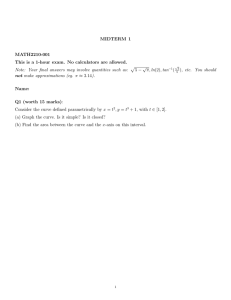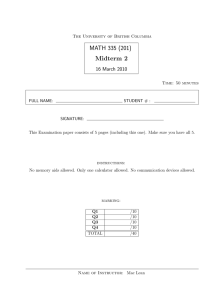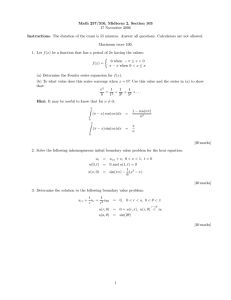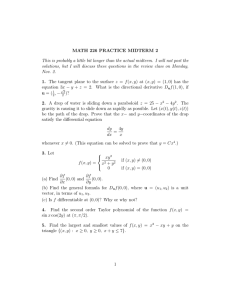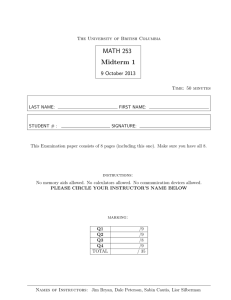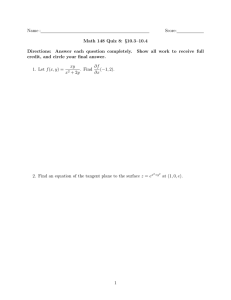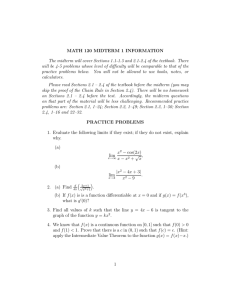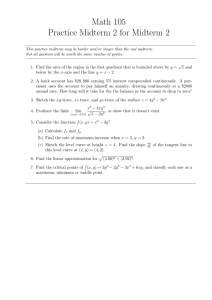MATH 253 Midterm 1 10 October 2012
advertisement
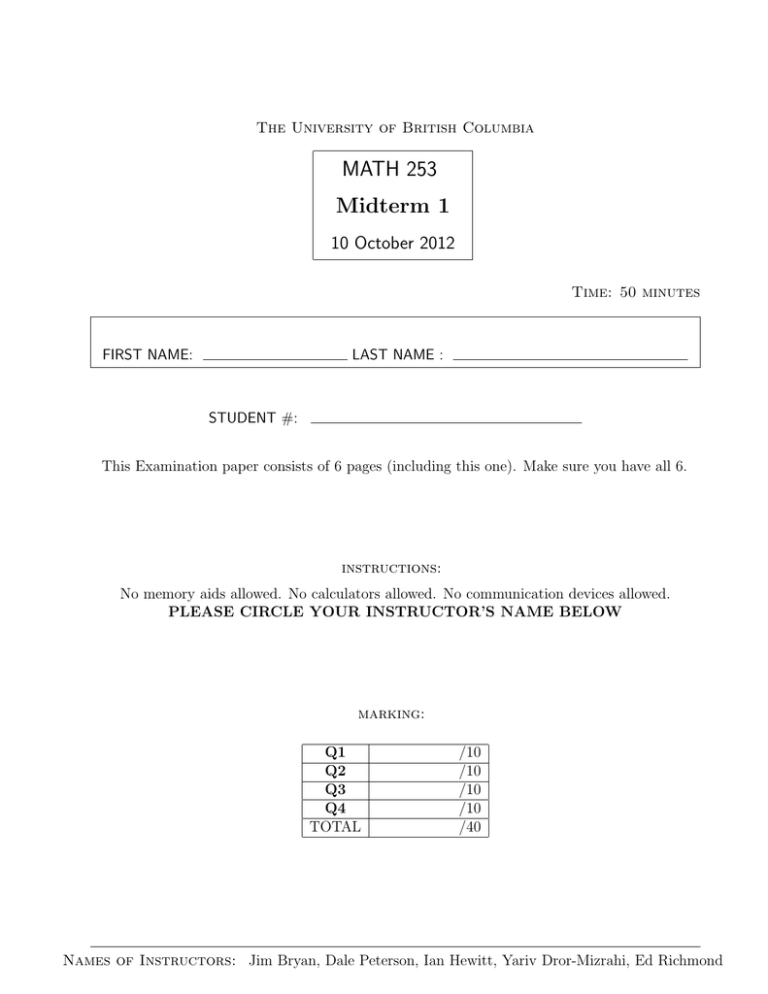
The University of British Columbia MATH 253 Midterm 1 10 October 2012 Time: 50 minutes FIRST NAME: LAST NAME : STUDENT #: This Examination paper consists of 6 pages (including this one). Make sure you have all 6. instructions: No memory aids allowed. No calculators allowed. No communication devices allowed. PLEASE CIRCLE YOUR INSTRUCTOR’S NAME BELOW marking: Q1 Q2 Q3 Q4 TOTAL /10 /10 /10 /10 /40 Names of Instructors: Jim Bryan, Dale Peterson, Ian Hewitt, Yariv Dror-Mizrahi, Ed Richmond MATH 253 Midterm 1 — 10 October 2012 — p. 2 of 6 Q1 [10 marks] Find the partial derivatives fx , fy , and fxy of the following functions: (a) f (x, y) = xexy (b) f (x, y) = x sin(ey ) (c) f (x, y) = Z y x t sin(et )dt MATH 253 Midterm 1 — 10 October 2012 — p. 3 of 6 Q2 [10 marks] Match each function with its contour plot (labeled A-I). f (x, y) = sin(2x) + sin(y) f (x, y) = cos(x + y) f (x, y) = (x − 2)(y + 1) f (x, y) = x2 − y 2 f (x, y) = 3x − y 2 A. B. C. D. E. F. G. H. I. MATH 253 Midterm 1 — 10 October 2012 — p. 4 of 6 Q3 [10 marks] Consider the surface z = x2 − 6xy + 2y 3 . (a) Find an equation for the tangent plane to the surface at (1, 2, 5). (b) On the surface near (1, 2, 5), there is a point (x, 1.99, 5.02). Find an approximate value for x. (c) Find all points on the surface where the tangent plane is parallel to the plane 2x+6y+z = 4. MATH 253 Midterm 1 — 10 October 2012 — p. 5 of 6 Q4 [10 marks] Consider the triangle formed by the three points A = (4, √32 , 0), B = (0, 0, √32 ), and C = (−3, √32 , 0). Let D be the point obtained by dropping a perpendicular line from B to the side AC as indicated in the following picture. Please note that the angles and distances of the triangle in this drawing are not necessarily accurate. B J J J J J J J C A D (a) Find the angle between the sides AC and BC. (b) Find the area of the triangle ABC. MATH 253 Midterm 1 — 10 October 2012 — p. 6 of 6 (c) Find the equation of the plane containing the points A, B, and C. (d) Find a unit vector which is normal to the plane. (e) Find the coordinates of the point D.
